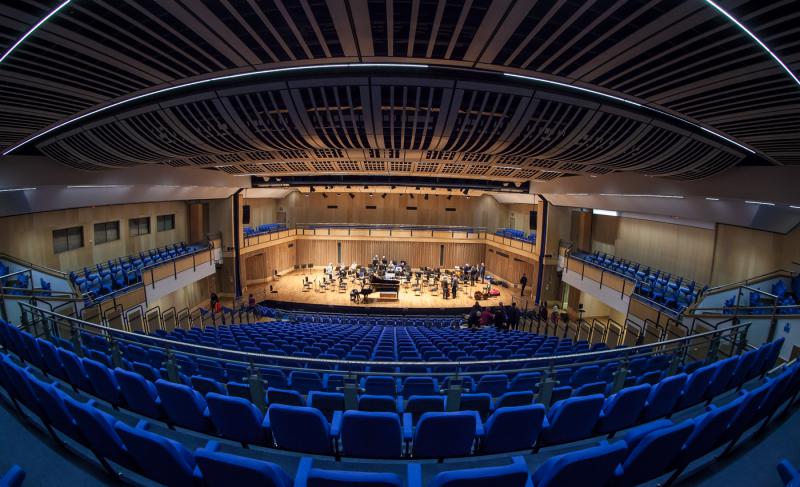There's a whole fairytale backstory to be told here. The residents of Saffron Walden and the surrounding area still can't quite believe their good fortune. The North Essex town and its state secondary school have been gifted a new 730-seat concert hall with a fine acoustic by a philanthropist with twin passions for state education and classical music.
The hall's run of good fortune has continued, right up to this concert, arguably its biggest coup to date. The hall's manager Angela Dixon had managed to book Nicola Benedetti for just one performance, and when all the tickets for the violinist's mostly Vivaldi programme sold out very quickly, Dixon pushed her luck, asked for a second night, and got it. The tickets for that were promptly snapped up too. The concerts – the second one is tonight – could have sold five times over, and you could feel a sense of gratitude and continuing disbelief all around the hall last night, from an astonishingly quiet and supportive audience.
What the acoustics of this adaptable £10m hall do give is clarity, which suited the scaled-down approach of Benedetti and La Cetra very well. Of course we all know that less is supposed to be more, but it does help if you can actually hear the quiet bits. Time and again the sound was pared back to a single, soft, vibrato-less violin line, and the pin-drop silence in the hall (pictured below by Simon Fowler) was to be savoured.

Basel, where the baroque chamber orchestra La Cetra is based, has a proud tradition in the performance of early and baroque music going back to the founding of the Schola Cantorum Basiliensis in the 1930s, and the current orchestra has both strong individual players – German-born cellist Jonathan Pešek stood out in particular – and an impeccable sense of ensemble playing. I couldn't help thinking of the film Whiplash and all that “rushing” and “dragging”. For director/harpsichordist Andrea Marcon, tempo is constantly alive in its unpredictability and its possibility. Indeed variation of tempo becomes one of the keys to broadening expressive range. As Marcon directed, encouraged and cajoled from the harpsichord, his players responded with flexible unanimity and total conviction.
Marcon's experience and his show-must-go-on approach also shone through when he had to deal with a tricky moment in Autumn from Vivaldi's The Four Seasons. It was clear from one sour note on the harpsichord that a string had worked itself seriously out of tune. Marcon spent the rest of the concerto avoiding that note, which led to a wonderfully dark exploration of the lower reaches of the harpsichord.
What was fascinating to watch was the infectious enthusisam with which Benedetti enters into a world which has to be on guard against its own seriousness and self-denial. She shares the ethos and the musical values of it, and yet brings her own sense of joy and adventure to it. The slow movement of Vivaldi's Spring was a case in point, where Benedetti's sweet, lyrical line was punctuated by the dry, stabbing sound of the viola of Joanna Bilger (excellent throughout).
Benedetti held the attention throughout. She radiates charm, enjoyment, congeniality, the qualities she brings to her public role as an advocate for classical music, particularly to the young. At the end of the concert she took a complete walk around the orchestra and shook the hand of every one of the principal players. In Saffron Walden with its Quaker heritage, it was, instinctively, probably accidentally, but definitely the right thing to do.















Add comment